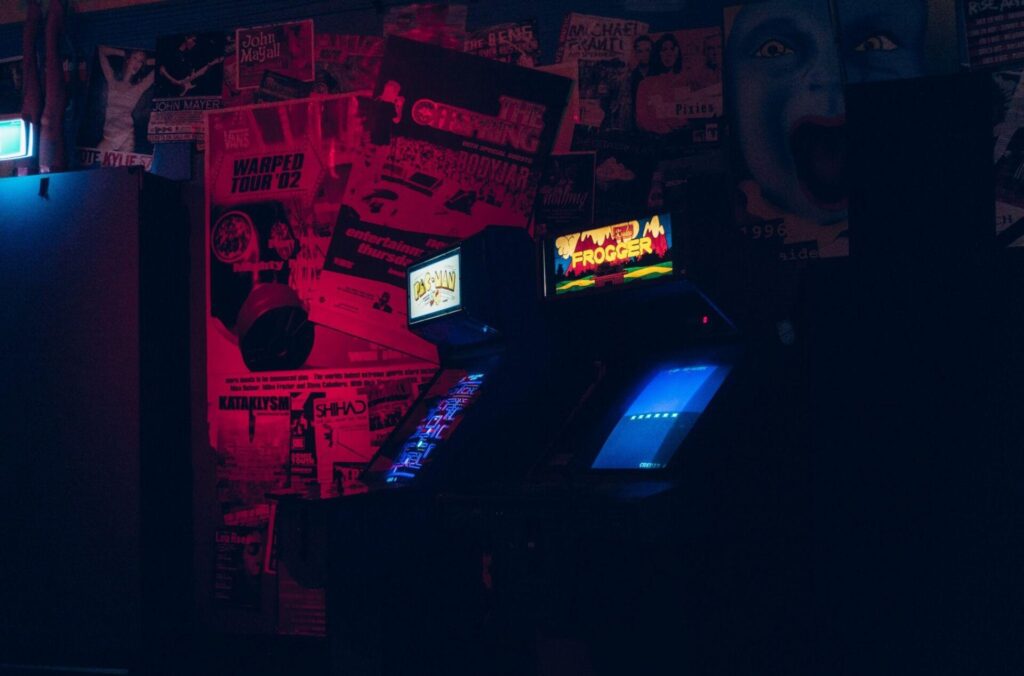Why Gamification is Crucial in the Entertainment Industry

Understanding What Gamification Is
Gamification is a new word that is used to describe the modern idea of adding game mechanics to tasks and television shows in order to foster a more receptive audience. We can see examples of gamification all over our television screens with streaming services such as Netflix and Amazon Prime being full of game TV shows.
It can come as a shock to many who have become used to the traditional way of consuming content, and so understanding gamification will of course come as a learning curve. That being said, this looks to be an inclusion that is here to stay, so it is something we need to get used to. The television viewing figures speak for themselves after all – who are we to argue?
What is gamification?
In short, gamification is the action of adding game-like elements to environments that are not usually associated with gaming actions. We can see gamification on TV shows, websites, social media online communities, educational systems, and systems where we would like to see more participation and engagement, for example, intra-company sites.
While this isn’t the only reason to include gamification, one of the ultimate goals of gamification in the workplace is to increase participation, whether it be with customers, staff members, or peers. This greater engagement can provide fresh impetus to work together in order to achieve greater goals as well as improve cohesion between team members.
A common way to implement some of these ideas is to provide the audience with tasks or content that mimics the mechanics we see in games, thus introducing a level of added competition to otherwise mundane or monotonous scenarios. This echoes a concept that has been present on our TVs for decades now – turning games into entertainment for us.
Entertainment and gamification
The entertainment industry has been particularly affected by gamification in that developers, and those who wish to drive up engagement, have been able to adapt existing websites and programs so that they can apply this. The existing software is already there so there is relatively minimal work to be done to gamify the websites and software we use.
In spaces where we already have games and challenges that are commonplace, we can see there is an added level of gamification possible. In gambling, certain bookmakers have gamified the gambling experience further by adding more ways to win that very much give a greater feeling of accomplishment – we see this with some “beat the bookies” promotions.
Even in successful industries, there are ways to ensure they stay ahead of the curve and adding another way to get that win will surely drive user engagement. The demand is there and the entertainment companies would be crazy not to give us what we want, especially when it gives them an opportunity to market products directly to us.
Why has gamification become so popular?
The main reason for gamification seeping into entertainment, as well as other walks of life, is that it works. As humans, we have a constant desire to be entertained and is there anything more entertaining than playing a game? Even if we aren’t directly involved, we can feel the pressure and it is this pressure that makes us invested in what we watch on TV.
Sport entertains us and the idea that our employers can incorporate some of the concepts shown on the TV in order to improve our productivity is an interesting concept because it adds an incentive to work harder. This highlights just how dependent we are on additional stimulation and the need to be entertained more and more – even when we are at work!
We are competitive animals by nature and so we thrive in environments where we see opportunities to beat our rivals. A fairly recent phenomenon, in the grand scheme of things, is watching other people compete. This desire to spend our free time watching other people compete on TV is a new one but can be explained in the same way that we watch sports.
Gamification is a central part of the way we live
Studies have shown that gamification in educational environments can increase student engagement with course content. It also provides a route to greater success as a result of the content being more accessible. That being said, certain personality types seem to be more open to gamified content and so we should make exceptions for this and act accordingly.
Even at home students can see more and more TV game shows which have been gradually gamified over the past few years. There are countless gaming TV shows which grace our TV screens and they are just as popular today as they were a decade ago. This highlights just how much we still enjoy seeing gamified TV shows during our precious free time.
This has come to the fore recently with the hit Netflix show Squid Game impressing audiences all over the world with its ability to capture viewers despite having a relatively simple plot that makes use of the simple schoolyard games that many of us once played. Early TV shows such as Takeshi’s Castle were insanely popular many years ago, and this shows us that gamification has been a key part of the entertainment industry for years.
Where else can we see gamification?
Global, multinational businesses are always looking for ways to innovate and find new ways to connect with staff and increase workforce participation. The latest way to do so is by ‘gamifying’ the often labelled ‘boring’ workplace tasks. These tasks can provide extra motivation for participants to improve their participation by making it more enjoyable.
An example of gamification that you might not have associated with this phase would be the error screen that is displayed when we are having trouble accessing Google. This gamified occurrence allows the user to transform the error screen into a playable mini-game that can be played indefinitely while the user waits for the issue, likely a connection one, to resolve.
This simple concept, which has been built upon in recent years by Google, serves as an additional way for us to be entertained in ways that we never would have thought of. Something as mundane as waiting for our internet to fix itself has not been turned into an opportunity for us to be entertained. It is hard to imagine a time before all of this.



 6 Easy Fixes for Netgear A6210 Adapter is Not Found Windows 10
6 Easy Fixes for Netgear A6210 Adapter is Not Found Windows 10  The Ultimate Guide: What To Do After A Car Accident
The Ultimate Guide: What To Do After A Car Accident  Are You An Introvert? Here’s Why You’ll Make A Great Programmer
Are You An Introvert? Here’s Why You’ll Make A Great Programmer